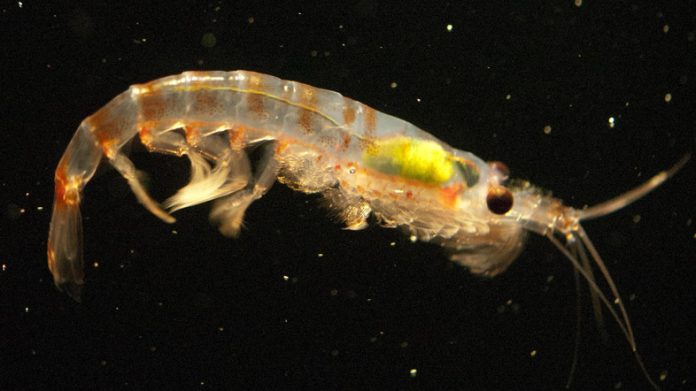Krill’s plastic digestion skills ‘mind-blowing’ for Australian Researchers.
The experiment, run at the Australian Antarctic Division’s krill aquarium and led by Griffith University’s Southern Ocean Persistent Organic Pollutants Program (SOPOPP) PhD scholar, Dr Amanda Dawson, found krill have the ability to physically change the size of ingested microplastics and turn them into nanoplastics.
Australian Antarctic Division Krill Biologist and research co-author, Dr So Kawaguchi, said the experiment was the first time scientists have examined microplastics digested by the crustaceans.
“The Division’s krill aquarium facility allowed us to alter the diet of the krill and study the digestion process as they ingested the microplastics,” Dr Kawaguchi said.
“What we have found is the krill have the ability to break the majority of the microplastics down into smaller fragments, effectively turning them into nanoplastics.”
The study found all the krill in the experiment contained a mixture of whole polyethylene (PE) microplastic beads and PE fragments.
The fragments were, on average, 78% smaller than the original beads with some fragments reduced by 94% of their original diameter.
“It’s a new pathway for microplastics to interact with the ecosystem, and we need to learn more about how microplastics interact with environment.”
Dr Dawson said the research fills important knowledge gaps regarding the abundance and likely impact of microplastics in the marine environment.
“The phenomena of digestive fragmentation has never before been reported in other planktonic crustaceans despite the facts that many possess similar gastric mills and mouthparts designed for mechanical disruptions.”
The researchers also identified the potential for translocation (movement across biological membranes) to occur after an organism has physically altered the ingested plastics.
Dr Kawaguchi said the research suggests that other zooplankton with a similar digestive system to krill may also be able to fragment microplastics into nanoplastics.
The experiment is one of many collaborative research efforts taking place in the Australian Antarctic Division’s krill aquarium.















